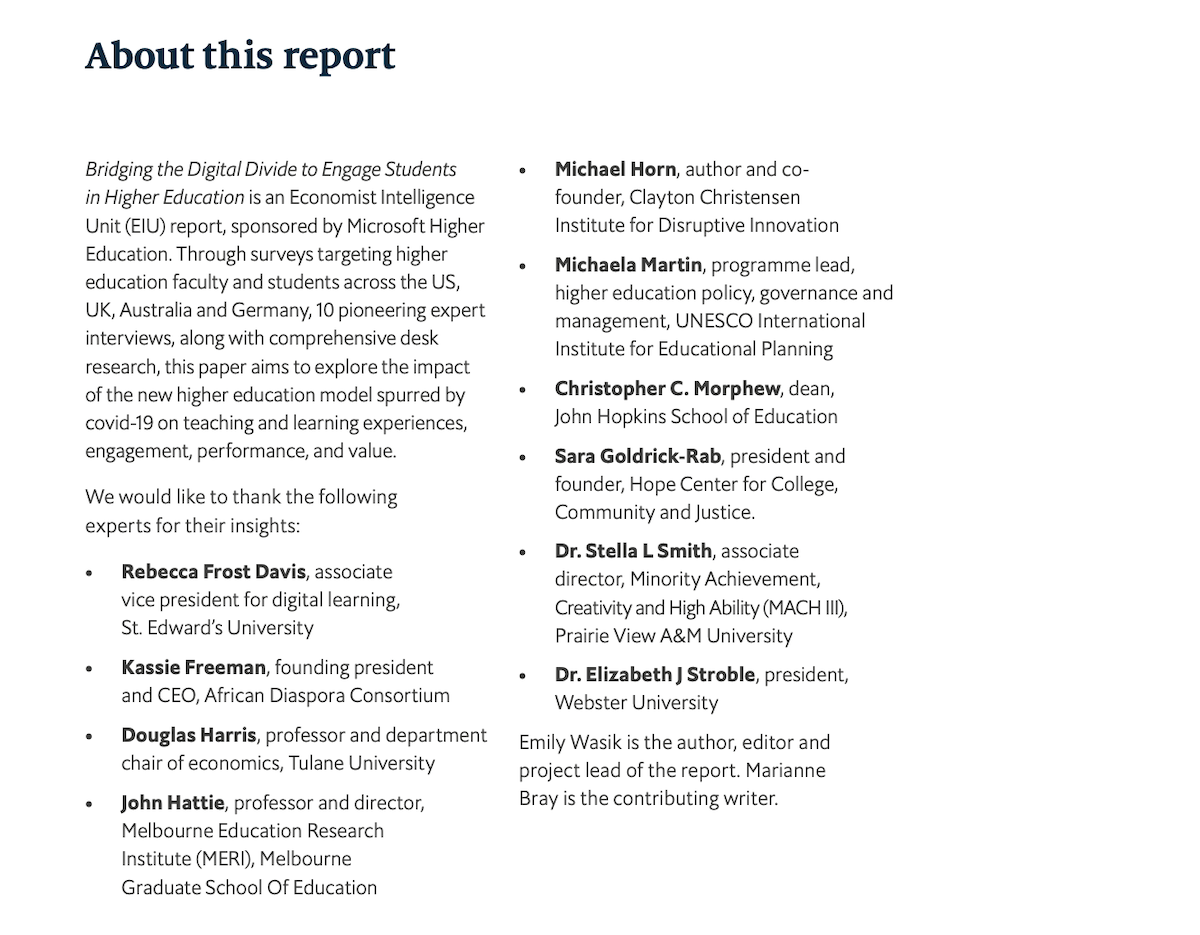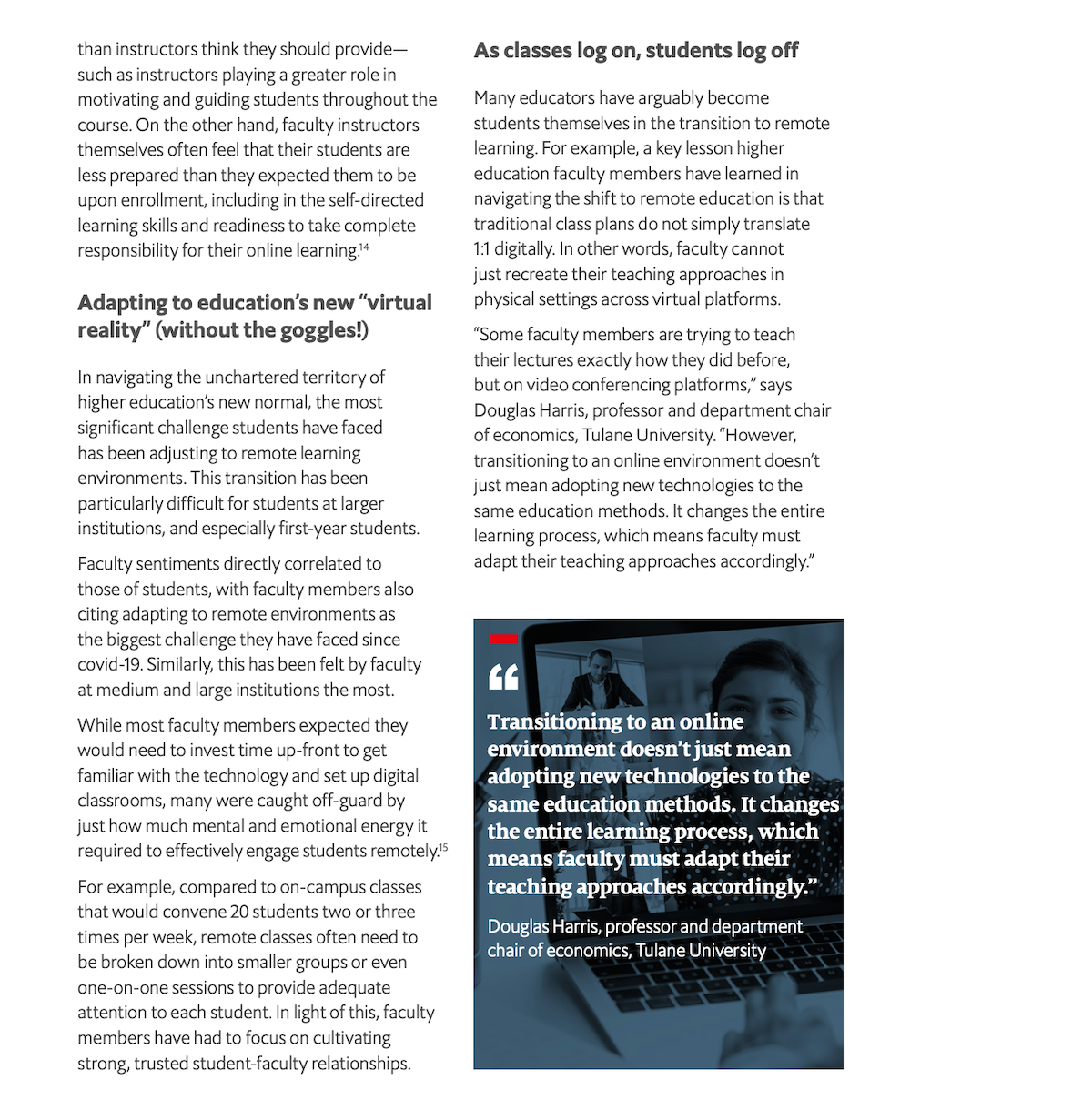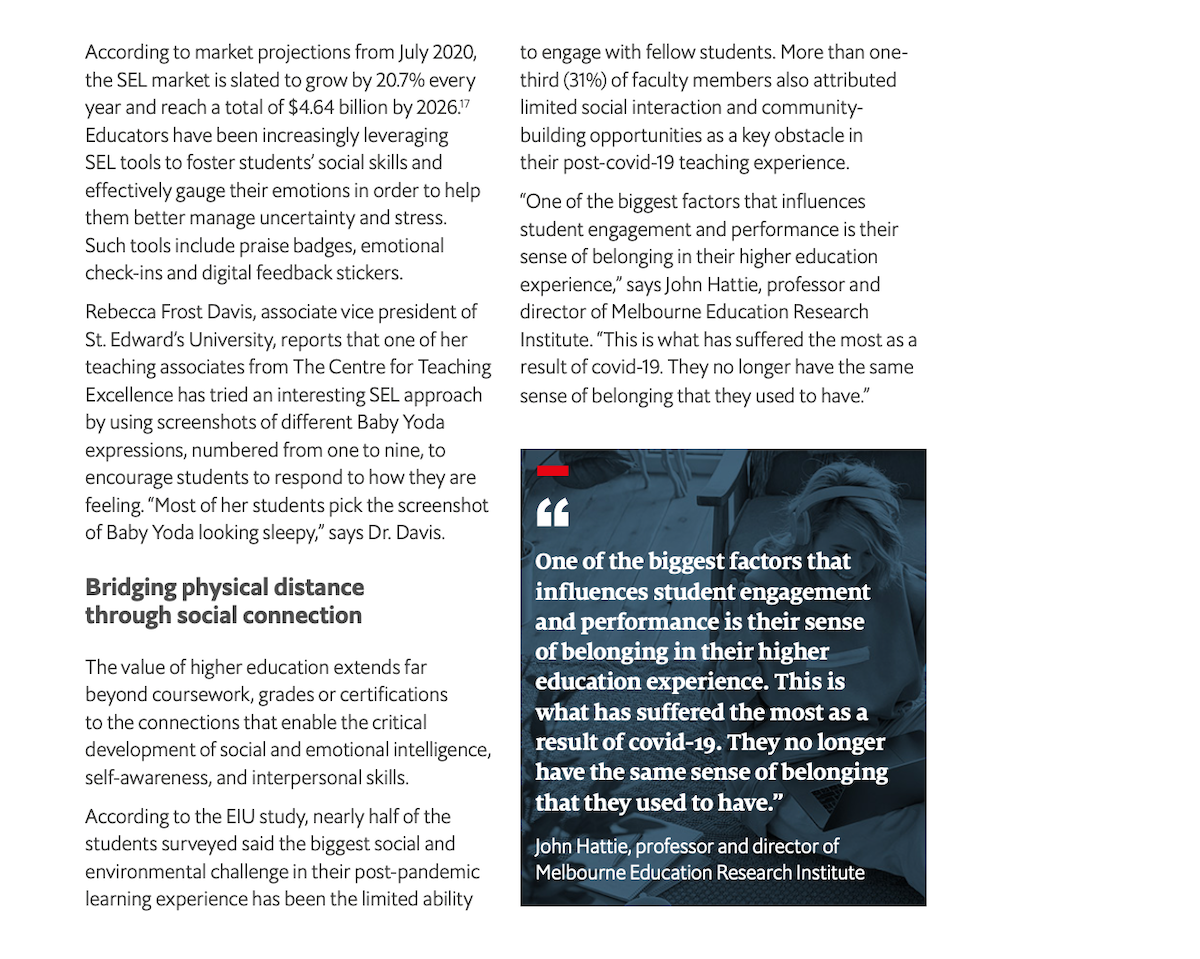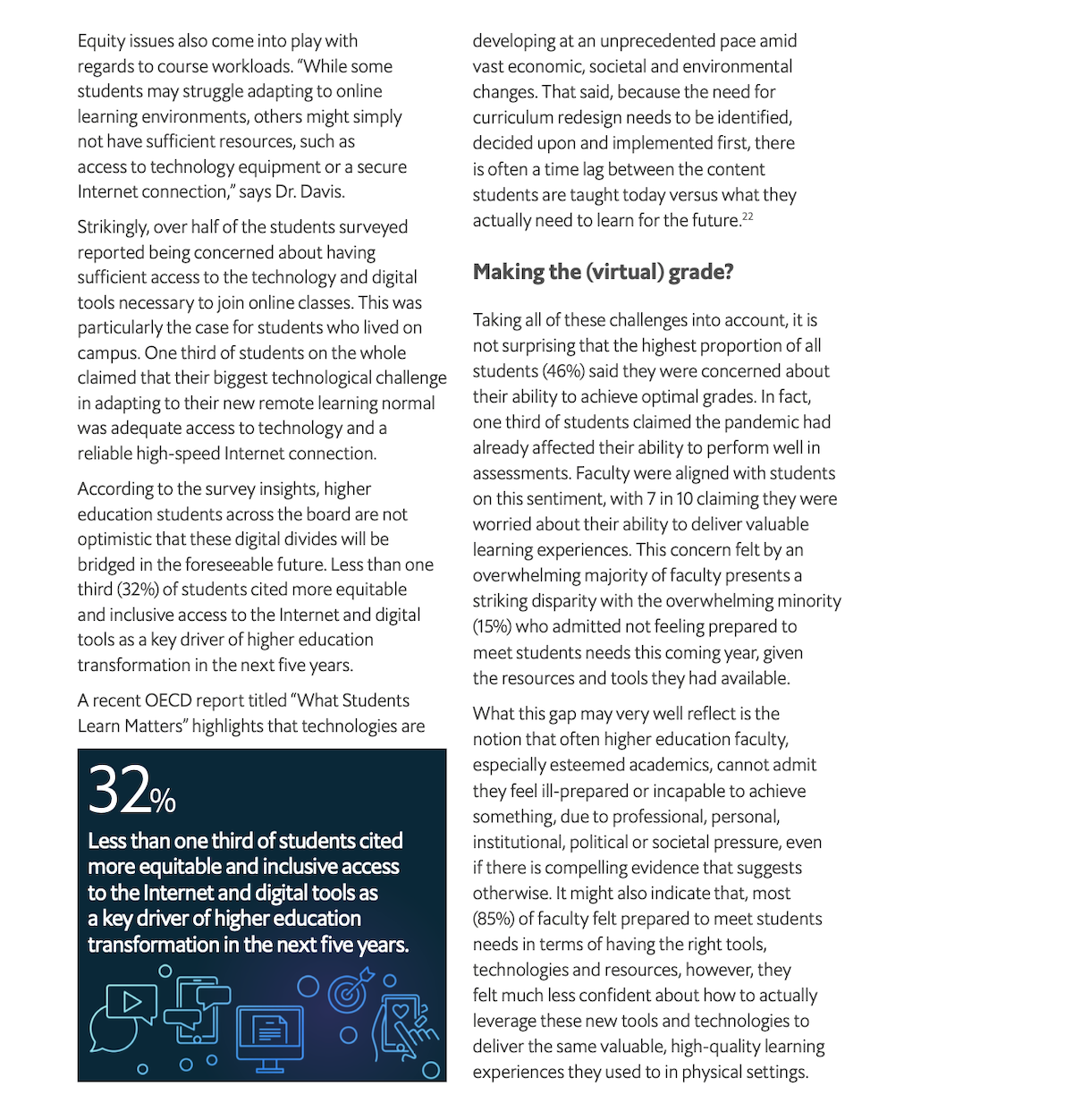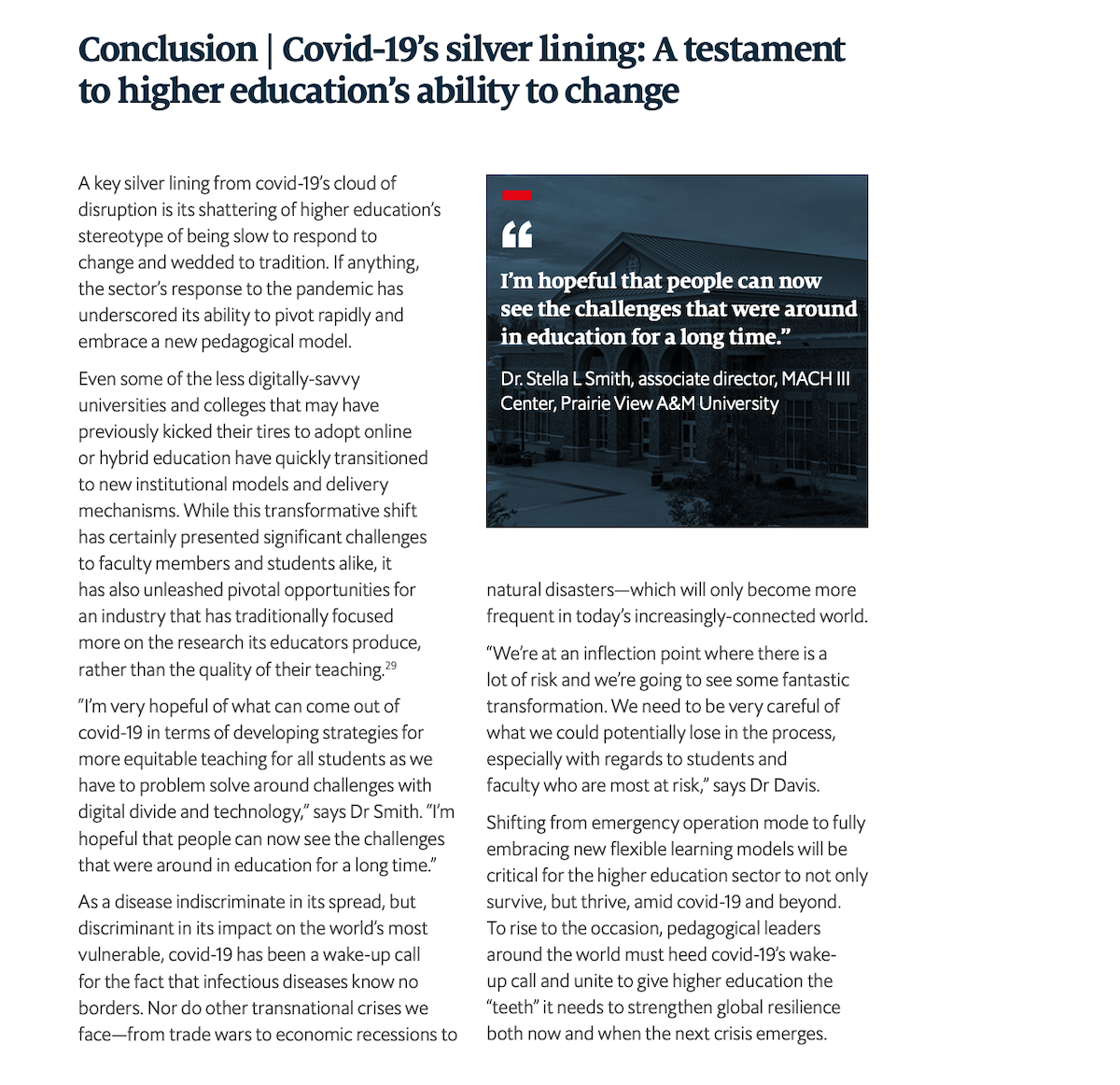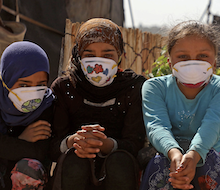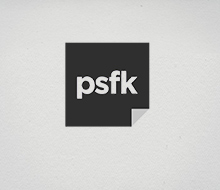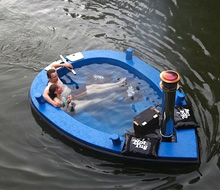‘Bridging the Digital Divide to Engage Students in Higher Education‘ is an Economist Intelligence Unit (EIU) report, sponsored by Microsoft Higher Education, that explores the impact of the new higher education paradigm spurred by covid-19 on teaching and learning experiences, engagement, performance, and value.
While video-conferencing apps and other social platforms have thrown various higher education institutions a lifeline in the wake of covid-19, research shows that many faculty professors are struggling to maintain the same depth of engagement with students they used to have in a physical classroom setting. Ensuring remote and hybrid learning experiences are just as effective and valuable is critical to the immediate and longer-term future of higher education. As a result, nearly every college or university—from small, two-year schools to large public and private institutions—have been asking the same question: How do we engage (and retain) students in this brave, new learning normal?
Through multinational surveys targeting higher education faculty and students, leading expert interviews, and desk research, the report explores how covid-19 hit the “fast-forward” button on the remote education revolution, and its resulting impacts on teaching and learning.
Emily Wasik is the author, editor and project lead of the report. Marianne Bray is the contributing writer. We would like to thank the following experts for their insights:
- Rebecca Frost Davis, associate vice president for digital learning, St. Edward’s University
- Kassie Freeman, founding president and CEO, African Diaspora Consortium
- Douglas Harris, professor and department chair of economics, Tulane University
- John Hattie, professor and director, Melbourne Education Research Institute (MERI), Melbourne Graduate School Of Education
- Michael Horn, author and co-founder, Clayton Christensen Institute for Disruptive Innovation
- Michaela Martin, programme lead, higher education policy, governance and management, UNESCO International Institute for Educational Planning
- Christopher C. Morphew, dean, John Hopkins School of Education
- Sara Goldrick-Rab, president and founder, Hope Center for College, Community and Justice
- Dr. Stella L Smith, associate director, Minority Achievement, Creativity and High Ability (MACH III), Prairie View A&M University
- Dr. Elizabeth J Stroble, president, Webster University
The report key findings include:
Most higher education institutions were not yet on the digital transformation bandwagon before covid-19. 82% of faculty members cited that less than half of their academic institutions’ courses were offered remotely prior to covid-19.
Since the outbreak, however, the crisis has served as a catalyst for accelerating widespread digital adoption at an unprecedented rate. Now, 83% of faculty members report that their institutions’ courses will be conducted all or mostly remote this academic term, and 62% say their institutions’ courses will be conducted all or mostly online for the coming academic year.
Most higher education students around the world reported not feeling mentally or academically prepared for the coming year. A striking two thirds (66%) of students claimed they did not feel mentally prepared for the year ahead, and 6 in 10 students cited not feeling academically prepared.
Adapting to new remote learning environments and maintaining student engagement have been the two most significant challenges facing both students and faculty since covid-19. Almost half (48%) of students claim the pandemic has worsened their ability to remain focused and engaged. 6 in 10 faculty members reported a decline in student engagement
The pandemic has also shone a spotlight on education system disparities. Over half of the surveyed students reported being concerned about adequate, equitable access to the technology and digital tools necessary to join remote classes since covid-19.
A lack of social connection has hindered student and faculty learning experiences. More than half of students cited limited engagement with fellow students as a significant challenge to remote learning. One third of faculty echoed this sentiment, reporting minimal social interaction and community-building opportunities as a key obstacle.
Covid-19 has heightened student concerns about achieving optimal grades and securing a job after graduation. One third of students have reported that the pandemic already affected their ability to perform well in assessments. Nearly half (46%) of students report being extremely concerned about their job prospects post-graduation.
Higher education institutions have rapidly pivoted to adopt new technologies to deliver engaging learning experiences. Most universities and colleges have implemented digital solutions such as video-conferencing tools, online platforms, web-based resources and live lectures. Around one in four faculty have created hybrid learning models, upskilled staff and increased investments in technology.
To truly boost student engagement and learning outcomes, however, faculty needs to evolve from digital solutions to more flexible and active learning approaches. One third of students said flexible learning and interactive methods are the most effective way to boost their engagement, and half cited flexible learning as providing the most benefit to their education experiences. 86% of faculty are convinced that flexible assessment and tools will continue long-term.
Most higher education faculty (85%) are convinced that covid-19 has accelerated the future of the remote learning revolution by a decade. As a result of the crisis, the first half of 2020 was the largest half year for global edtech investment in over 10 years – at $4.5 billion – three times greater than the average 6-months of investment in the prior decade.
The pandemic has forced educators to rethink how teaching can best be used to deliver high teaching outcomes. Three quarters of students agree that technology and digital tools will not be a replacement for actual teachers and professors. A shared sentiment among the experts interviewed was that in-person learning is integral to cultivating higher-level cognitive skills such as critical thinking, problem solving, and decision making.
A key silver lining from covid-19’s cloud of disruption is its shattering of higher education’s stereotype of being slow to respond to change and wedded to tradition. If anything, the sector’s response to the pandemic has underscored its ability to pivot rapidly and embrace a new pedagogical model.


